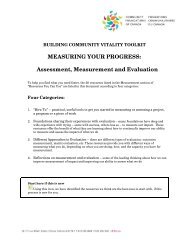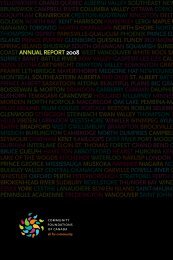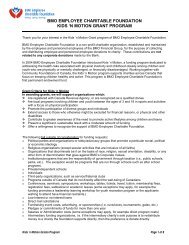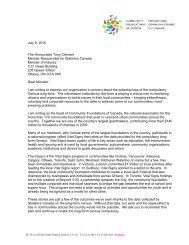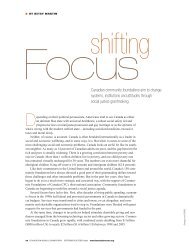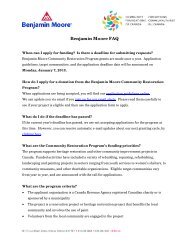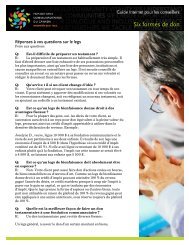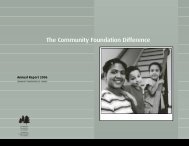Aboriginal Philanthropy in Canada: A Foundation for Understanding
Aboriginal Philanthropy in Canada: A Foundation for Understanding
Aboriginal Philanthropy in Canada: A Foundation for Understanding
Create successful ePaper yourself
Turn your PDF publications into a flip-book with our unique Google optimized e-Paper software.
6.2 FOUNDATIONS<br />
The follow<strong>in</strong>g recommendations are directed to foundations that are <strong>in</strong>terested <strong>in</strong> fund<strong>in</strong>g<br />
<strong>Aborig<strong>in</strong>al</strong> communities. As this report has demonstrated, a new paradigm of philanthropy is needed<br />
to work successfully with First Peoples. These recommendations provide direction to establish that<br />
new framework.<br />
• Be open to <strong>in</strong>novations and paradigms that support susta<strong>in</strong>ed change: develop true partnerships<br />
and commit to long term <strong>in</strong>vestments. Develop relationships with First Peoples’ communities and<br />
nurture them: do what is asked, consult with the community and support community ownership.<br />
• Build the amount of support to Indigenous-led <strong>in</strong>itiatives, as dist<strong>in</strong>guished from the amount of<br />
money given to issues; this can <strong>in</strong>clude <strong>in</strong>creas<strong>in</strong>g support <strong>for</strong> arts, economic development, culture<br />
and other projects that are led by <strong>Aborig<strong>in</strong>al</strong> people, not NGOs.<br />
• Stop pathologiz<strong>in</strong>g Indigenous people. There is an opportunity <strong>for</strong> foundations to change the<br />
perception of who <strong>Aborig<strong>in</strong>al</strong> people are.<br />
6.3 CONCLUSIONS<br />
The f<strong>in</strong>al words are given to a foundation representative who has been work<strong>in</strong>g on <strong>for</strong>g<strong>in</strong>g<br />
relationships with First Peoples:<br />
“We have to work on systemic change rather than services and programs. The old school model<br />
of philanthropy is just try<strong>in</strong>g to ‘do good’ and they sometimes end up throw<strong>in</strong>g good money after bad.<br />
For example, our foundation gets a lot of requests <strong>for</strong> programs to go north <strong>for</strong> suicide prevention,<br />
but we don’t know anyth<strong>in</strong>g about how successful they’ll be <strong>in</strong> that sett<strong>in</strong>g. They might have a<br />
proven track record <strong>in</strong> an urban sett<strong>in</strong>g, but will they work <strong>in</strong> the north? We don’t know. We have<br />
more success when programs come from the community. When it is driven by them, the change<br />
comes from <strong>in</strong>side. A related broader national question is the way <strong>in</strong> which <strong>Aborig<strong>in</strong>al</strong> public policy<br />
is fashioned; we’ve had a century of it be<strong>in</strong>g driven by one dysfunctional government department.<br />
<strong>Foundation</strong>s have a moral obligation to <strong>in</strong>vest <strong>in</strong> public policy work and a responsibility to promote<br />
alternative policy and systems. <strong>Foundation</strong>s can help liberate us from the Indian Act. There is fertile,<br />
fruitful ground <strong>for</strong> philanthropy.”<br />
The Circle on <strong>Philanthropy</strong> & <strong>Aborig<strong>in</strong>al</strong> Peoples <strong>in</strong> <strong>Canada</strong> 48





